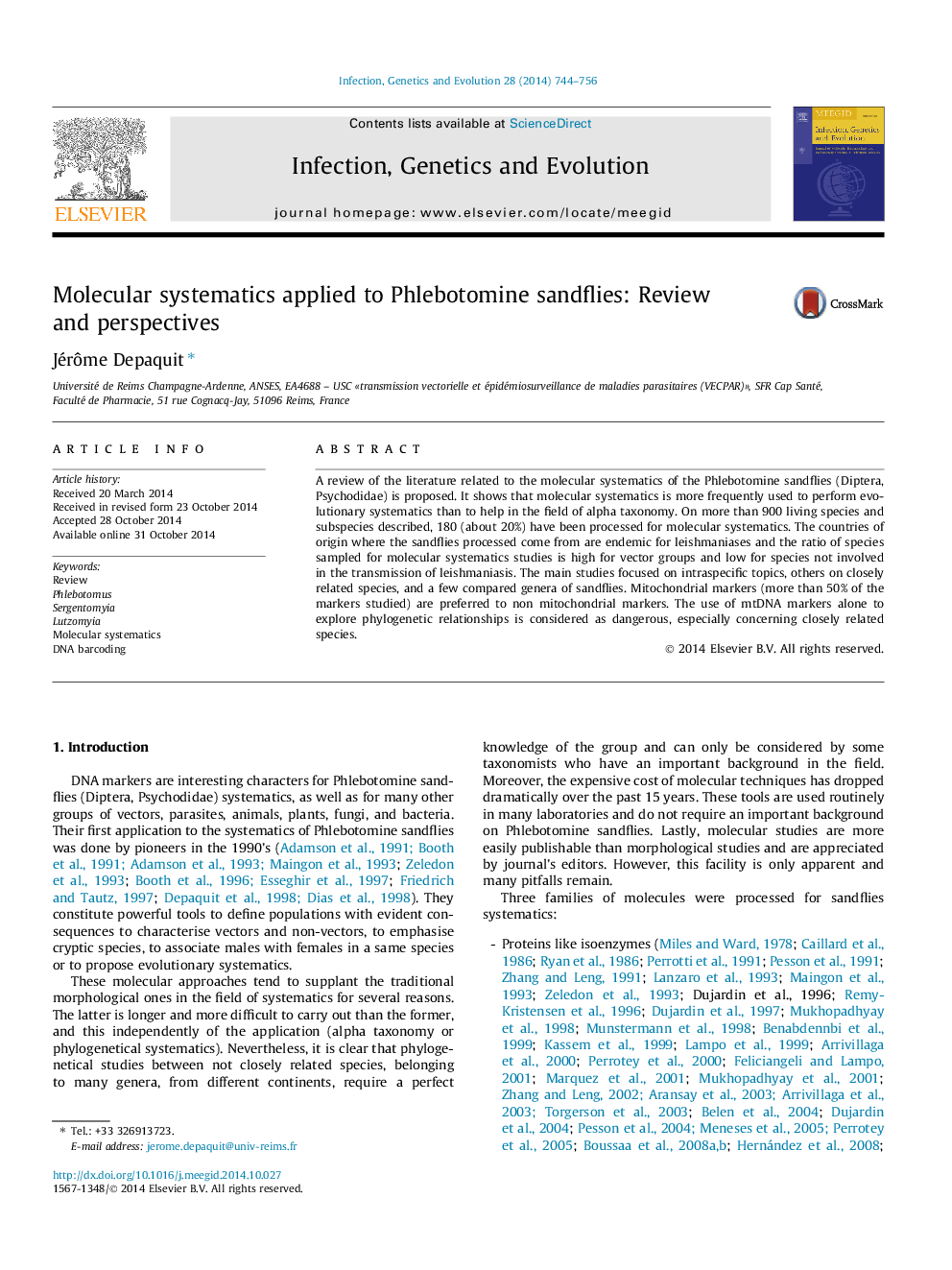| Article ID | Journal | Published Year | Pages | File Type |
|---|---|---|---|---|
| 5909598 | Infection, Genetics and Evolution | 2014 | 13 Pages |
Abstract
A review of the literature related to the molecular systematics of the Phlebotomine sandflies (Diptera, Psychodidae) is proposed. It shows that molecular systematics is more frequently used to perform evolutionary systematics than to help in the field of alpha taxonomy. On more than 900 living species and subspecies described, 180 (about 20%) have been processed for molecular systematics. The countries of origin where the sandflies processed come from are endemic for leishmaniases and the ratio of species sampled for molecular systematics studies is high for vector groups and low for species not involved in the transmission of leishmaniasis. The main studies focused on intraspecific topics, others on closely related species, and a few compared genera of sandflies. Mitochondrial markers (more than 50% of the markers studied) are preferred to non mitochondrial markers. The use of mtDNA markers alone to explore phylogenetic relationships is considered as dangerous, especially concerning closely related species.
Related Topics
Life Sciences
Agricultural and Biological Sciences
Ecology, Evolution, Behavior and Systematics
Authors
Jérôme Depaquit,
